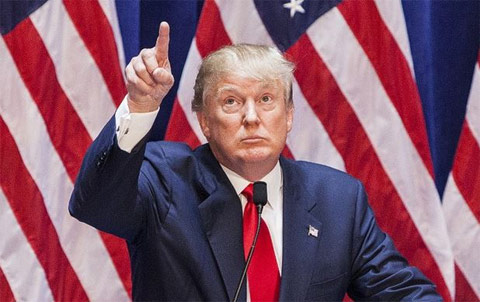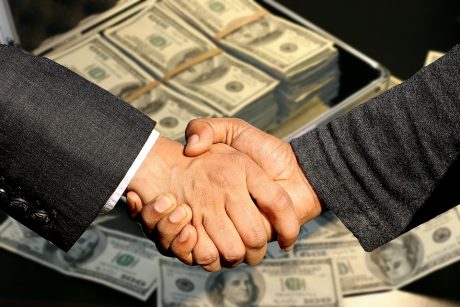The National Inflation Association has released their new documentary titled The Dollar Bubble.
The Dollar Bubble features Peter Schiff, Ron Paul, Marc Faber, Gerald Celente, Jim Rogers, and others. It covers countless topics including the U.S. national debt, deficit spending, inflation, precious metals, agriculture, Real Estate, health care, education system, foreign currencies, cash for clunkers and more.
The Dollar Bubble is a must see for you, your friends, and family members. Please spread the word about the documentary to help those you care about survive the real economic collapse that is ahead.
Watch the Full 30 Minute Documentary:











More rambling (and I mean with a capital “Râ€) thoughts from Rick’s Cafe in Casablanca…
As I’ve admitted here many times, I don’t know jack…so this is just me shooting from the hip…but I don’t know, guys. This, at least in the short-term, just doesn’t feel right to me (long-term we’re dust – no doubt).
First of all, good video, and I agree with almost everything in it…especially the suff about government involvement leading to increased prices – such as in education and health care.
That being said, I think it’s important to keep an eye on exactly which definition one uses for “inflation.” At the beginning of the video, the focus seems to be simply that the Fed is “printing†(in various ways) money and pumping it into the system. OK, that makes sense to me. Thr more money you “print,†the more money there is chasing the goods out there.
However, on that point (I can’t believe I’m about to write this), Bernanke makes a valid point: much of that money is sitting as reserves with the Fed, so it’s not out “chasing goods†per se (although people know that money exists – thus, in theory, their money has been diluted by it…more on this in a bit).
On top of that, the video did not even mention the trillions (I think) in wealth/money/credit that has been destroyed over the last couple of years (e.g., via housing). It also made no mention of the huge losses that are expected by many to be realized by the banks – some of which have already “happened†(just not realized yet) and some that SHOULD be realized over the next couple of years (e.g., more housing and commercial real estate).
My point here is this – as Mish has written a ton about over the last year or so, what exactly is inflation? Is simply “printing†money in various ways enough to “cause†inflation? Can/should you ignore the reduction of other things, such as credit? Especially consumer credit in an economy that is so heavily dependent on consumer spending? How will the imminent losses from CRE, for example, affect “inflation?”
Later in the video, government intervention causing increased prices is discussed – like in health care and education. With education, OK, I guess. Peter Schiff has opined that all of the various government-backed students loans have helped push tuition costs up? That makes sense, I think, as giving students an ever-increasing supply of money to pay for school increases student competition to get into school – thus supply/demand dictates that costs go up. Such an increase in the supply of “money†in loan form could certainly be argued to be inflationary.
Â
Food and health care are different matters though. Sure, government involvement is pushing prices up as it interferes with the free market’s ability to lower prices, but I don’t think that has anything to do with “inflation†from “printing†money. Maybe I misunderstood their point there, but the video seemed to want to strap those price increases with “money printing.â€Â Granted, if they are correct about the money printing thing, sure, prices of everything will go up. I just don’t think price increases caused by, for example, (possible?) decreases in food supply, perhaps caused by the nonsense occurring in central California right now (Google it), should be labeled a result of “inflation.â€
Â
In light of what I wrote above, let me present something I see as a POSSIBLE turn of events in the “near†future (again, in the long run = dust):
Â
The dollar scare, along with the recent rally in the stock market and gold, is starting to feel a bit like the housing bubble…at least with respect to the stock market and gold (but in reverse, so to speak, with respect to the dollar).
Â
Why? Because more and more people are starting to talk about it, while the moves in the stock market and gold seem to be getting more and more “irrational.â€Â Nevertheless, more and more people “seem†(I think) to be jumping onboard.
Â
That is EXACTLY the way it felt when I bought my house in 2005. I “knew†the price I was paying for my house didn’t make a damn bit of sense…and yet I did it anyway.
Â
I’m not starting to think that “they†(e.g., the Fed and the “banksâ€) are hoping that regular people are going to get real nervous about their wealth tied up in dollars. So, I think the hope is that more and more regular people start buying into the stock market and commodities. As this happens, the banks will be quietly getting out of both markets…
Â
Then, at some point, the rug is going to be pulled out from under this rally, perhaps by the Fed jacking rates up (how much? I don’t know). The result would most likely be a strong rebound in the dollar, along with a SERIOUS correction in the stock market and gold (yet, my gut is that gold will do much better than stocks…and long term is solid, and then some). In the meantime, the banks (e.g., GS) will have made of with many, many dollars that it yanked from everyday investors, WHICH at that point would be worth considerably more than dollars are as of right now.
Â
In the end, Wall Street will just get richer. Then, they will have access to the $800 billion (or whatever it is) in reserves they have sitting with the Fed to cover their losses from CRE, etc. Net “inflationary” effect = 0????
Â
On top of that – Bernanke simply CAN NOT let the dollar really collapse. He can’t. Period. Why? As we all know, if that really happens (say DXY c. 40-50), foreign investors WILL stop buying our debt (right?)…and the way we are running this circus right now, if that happens, each of us will be spending our weekend (and perhaps weekday) nights at our local Thunderdome.
Â
To summarize my vision of a POSSIBLE near-term outcome of all of this:
Â
The current weakness in the dollar is going to turn out just to be a head fake intended to siphon more money from the American people to Wall Street.
Â
The biggest problem I see with my crazy theory is that, if I understand the current volumes being traded in the stock market, “people†just aren’t buying into this…at least yet (or has trading volume gone back up?). I guess/think until that happens, my theory is total nonsense…
Â
OK, I’m done…assuming anyone read this far.
Â
I’d like to respond to my own comment with this:
http://market-ticker.denninger.net/archives/1666-Big-Trouble-In-Big-China.html
Either I don’t know what the hell I’m talking about (99% chance of that), or Ben’s going to have to slam on the brakes pretty darn soon.
Some awesome Rambling there, Rick! (and I read the whole thing).While the doomiest dollar forecasts out there are possible (Faber – “I see the dollar going to zero”) , I find it unfathomable as well. This is the U. S of freakin’ A we’re talking about! All kidding aside, the hyperinflation experienced by Germany in the 20s had numerous contributing factors – not merely the excessive printing of currency. And while our contemporary dollar mills are certainly working overtime,  and we are witnessing other similarities to the Weimar era that are not quite so parallel, there are some (IMO) critically important differences.
At the time, Germany was still burdened paying war reparations (perhaps compares to our Iraq & Afghanistan activities but more likely compares to our obligations as a net debtor nation).
Germany defaulted on payments resulting in a regional invasion of a productive region (there is a BIG difference here: the US is THE superpower and therefore a financial safe haven; market appetite for US debt issuance continues (so far) unabated)
The loss of that region and some ensuing labor strikes slaughtered economic output (Difference: hard to strike when you’re unemployed – the US worker is chomping at the bit to be productive again).
The loss of productivity caused Germany’s exports to plunge &Â imports to soar (we’ll have to see how this evolves in the US – but the declining dollar has aided exports of nat resources/ags and reduced imports of oil).
No doubt these are troubling times and mac’s BlackSwan post reminds us that anything can (and often does) happen. However, at this point, I can’t imagine a better country within which to reside, regardless of what’s coming down the pike:
if the SHTF here big time and the US fractures into ‘regions’, we might still be ok – or you can scoot into Canada;
if the planet is heating (I know, I know – just wait, this is a black swan thing), again, we can scoot into Canada;
if the planet is cooling, we can take over Mexico…hehehe;
and back to that Superpower thing, nobody is going to physically mess with us on a large scale – which is something that only a couple countries can be assured of.
How’s that for some RAMBLING (all caps too) ?
Cheers!
– TomOfTheNorth
Rick,
Responding to your response on your own post to which I already responded (got it?): Bruce Bueno de Mesquita has said that China is unsustainable and will inevitably collapse absent further (or any) decentralization. If you haven’t heard of him, he’s a strategic thinker (ridiculously compared to Nostradomus) with a quantitative model of macro-behavior. Here’s a talk he gave @ TED:
http://www.ted.com/talks/bruce_bueno_de_mesquita_predicts_iran_s_future.html
Cheers!
– TomOfTheNorth
Did not have the impact of HYPERINFLATION NATION or DEBT SLAVE. I like these guys but when they wrote a memo saying that
Nouriel Roubini Doesn’t Understand Inflation and Deflation
I think thet are a little doctrinaire. It appears to me that deflation is still the problem. Inflation/Deflation both stem from screwed up fiscal, monetary, industrial policy and to argue about sematics is silly. The discussion of inflation in the film were concerns of movements of the supply curve and not necessarily from “money printing”. I still say Mish is winning this argument. But these guys make interesting films and will ultimately be correct…It may take 5-10 years but they will be right.
Comments…..We need to start manufacturing here in America. And, Gold fluctuates just like the stock market. Globally, all is in a tumbling downhill mode. No surprise here!